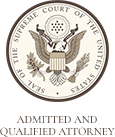First amendment rights can be tricky when it comes to college campuses. The First Amendment protects your right to free speech, for example, but it does not give you the right to behave violently. Crossing the line into direct verbal attacks, violence or creating a hostile environment is a separate issue.
Keep reading for more information on your First Amendment rights on college campuses.
The First Amendment and directing a crowd
As found on the American Civil Liberties Union website, the First Amendment does not protect all types of speech. In fact, in 1969 the Supreme Court ruled that speech can be punishable if it is intentionally used to persuade a crowd of people to immediately do something illegal and violent. It is important to note, however, that you must be successful in your efforts to make people do those things to be held liable. If you hold a meeting on campus and use inflammatory language to incite people to riot and destroy property directly afterward, you can face legal consequences if they do it.
Free speech versus threatening tactics
While free speech is an indivisible right, there is a fine line that you can cross that does become illegal. For example, using speech to communicate threats of physical violence is actually intimidation and becomes a civil crime. While you are free to speak your mind, your rights are not protected if you are using those words to harass, intimidate or scare someone else. It is important to understand the difference between which types of speech the First Amendment protects and which will get you in trouble.



